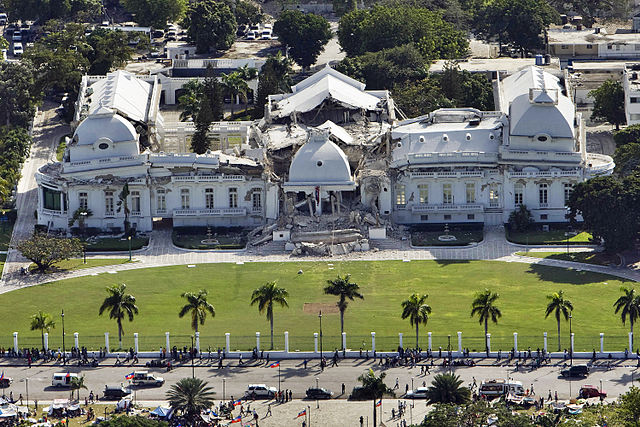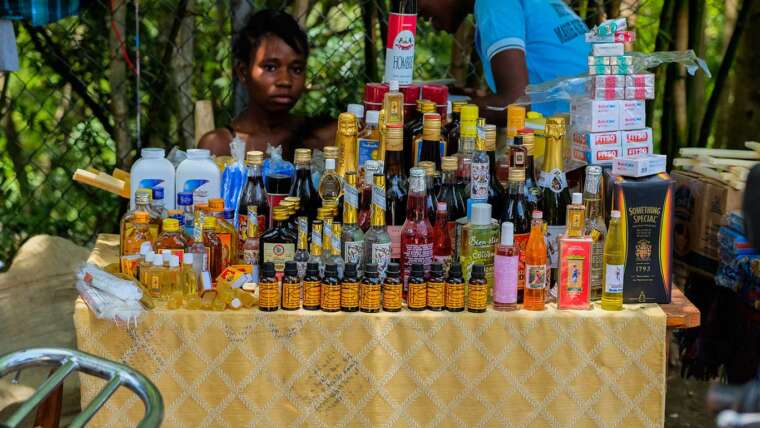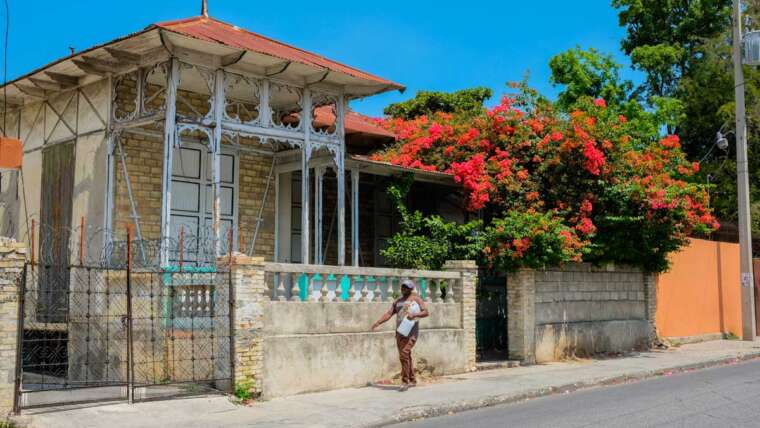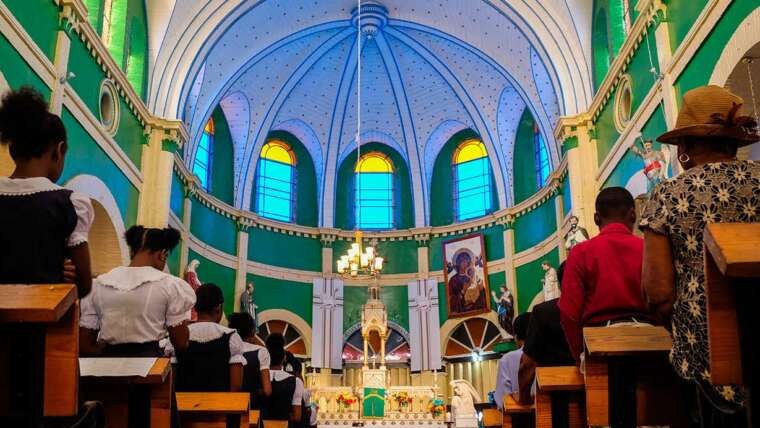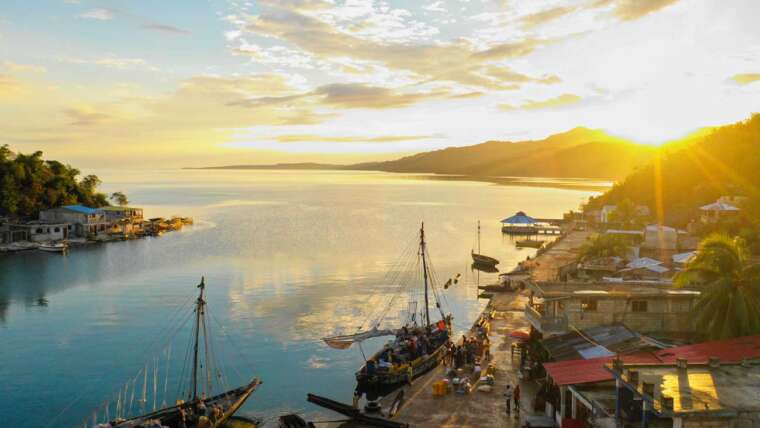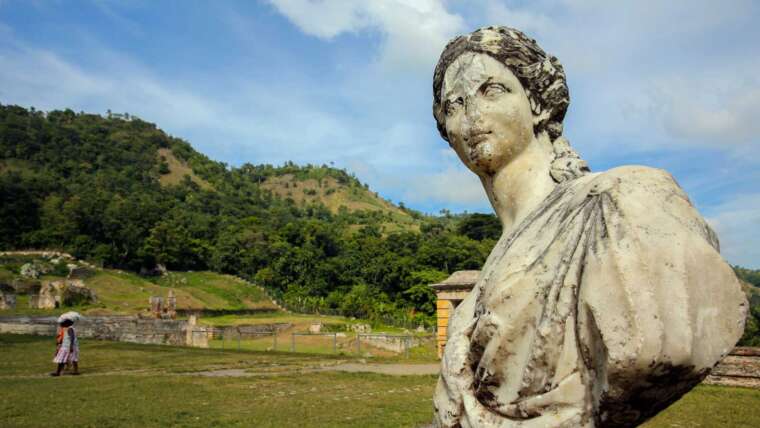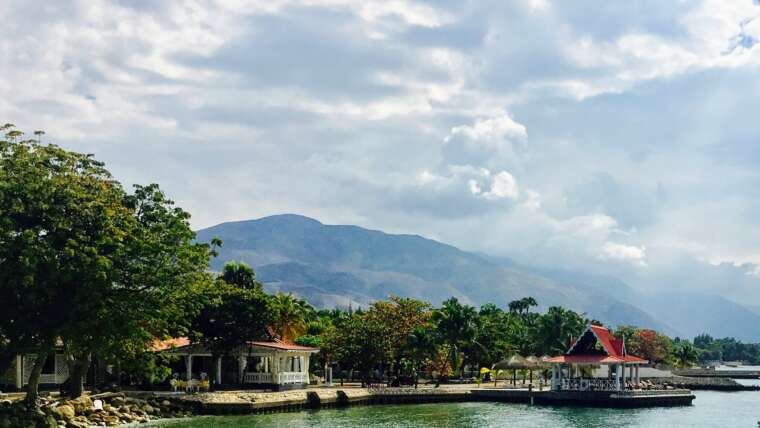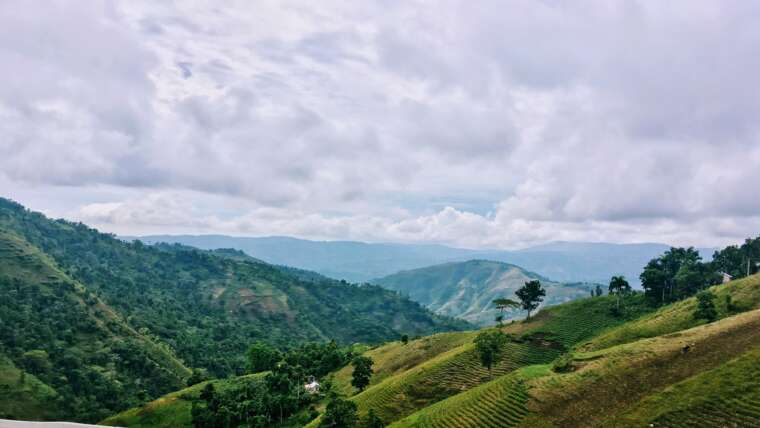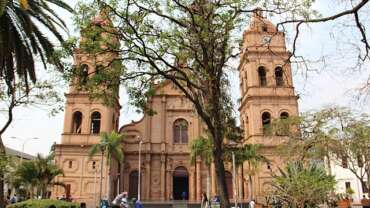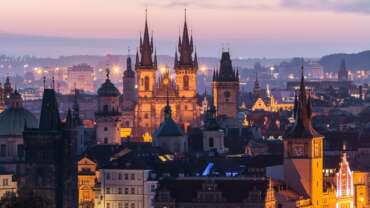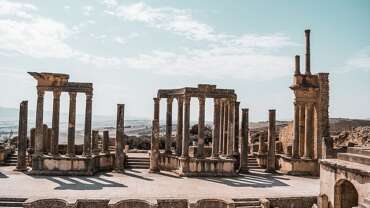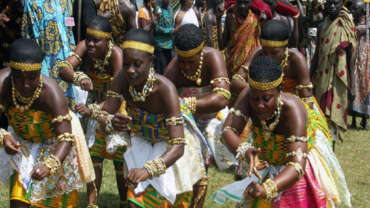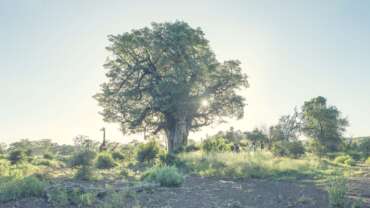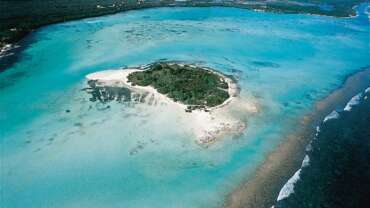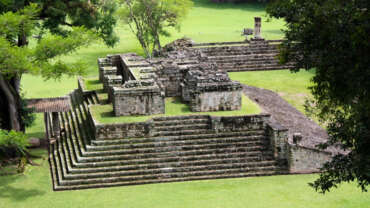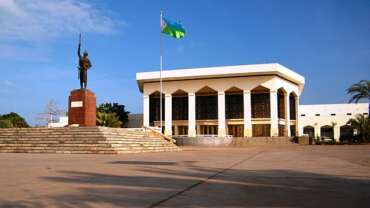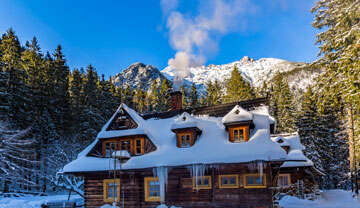Haiti - A land with a soul
Haiti is a Caribbean country that shares the island of Hispaniola with the Dominican Republic to its east. Though it’s still recovering from a 2010 earthquake, many of Haiti’s landmarks dating to the early 19th century remain intact. These include Citadelle la Ferrière, a mountaintop fortress, and the nearby ruins of Sans-Souci Palace, the baroque former royal home of King Henry I.
History of Haiti
The following discussion focuses on events from the time of European settlement. For treatment of earlier history and the country in its regional context, see West Indies.
Early period
The island that now includes Haiti and the Dominican Republic was first inhabited about 5000 BCE, and farming villages were established about 300 BCE. The Arawak and other indigenous peoples later developed large communities there. The Taino, an Arawak group, became dominant; also prominent were the Ciboney. In the 15th century between 100,000 and several million Taino and Ciboney lived on the island, which the Taino called Quisqueya. They based their economies on cassava (manioc) farming, fishing, and inter-island trade that included gold jewelry, pottery, and other goods.
Italian navigator Christopher Columbus sighted Quisqueya on Dec. 6, 1492, and named it La Isla Española (“The Spanish Island”), later Anglicized as Hispaniola. Over the next few decades the Spanish enslaved vast numbers of Taino and Ciboney to mine for gold. European diseases and brutal working conditions devastated the indigenous population, which fell to about 30,000 by 1514; by the end of the 16th century the group had virtually vanished. Thousands of slaves imported from other Caribbean islands met the same fate. The Spanish altered the landscape by introducing cattle, pigs, and horses, which multiplied into large herds. Spanish settlement was mostly restricted to the eastern end of the island, and many Spaniards left Hispaniola after the main gold mines were exhausted.
French pirates in the mid-16th century entrenched themselves firmly on Tortue Island and other islands off the western end of Hispaniola. Subsequently both French and British buccaneers held bases there. Permanent settlements began to develop, including plantations. In the 1660s the French founded Port-de-Paix in the northwest, and the French West Indies Corporation took control of the area. Landowners in western Hispaniola imported increasing numbers of African slaves, which totaled about 5,000 in the late 17th century.
People of Haiti
Ethnic groups and languages
Nearly all of Haiti’s population are of African origin (termed blacks). A small minority of people of mixed European and African descent (called mulattoes) constitute a wealthier elite and account for most of the remainder. There is also a small number of people of European descent. Haiti has differentiated itself ethnically, linguistically, and culturally from other Caribbean and Latin American countries, notably the Spanish-speaking and the English-speaking countries of the region.
Haitian Creole (Kweyol, or Kreyol) and French are the official languages. Creole is normally used in daily life, and French—the second language of perhaps one-tenth of the people—is used in more formal circumstances. However, written Creole is not widely accepted, because the school system retains French as the main language of instruction. Most of the vocabulary of Haitian Creole is derived from French, but in its syntax it is similar to the Creole languages of the Caribbean and the Indian Ocean.
Religion
Haiti has no official religion, and the constitution allows for religious freedom. More than half of the population practices Roman Catholicism, the dominant sect of Christianity, and approximately one-fourth is Protestant or independent Christian. Liberation theology continues to have some influence in religious life, notably in the shantytown areas of Port-au-Prince and other towns. Most Haitian Roman Catholics are also practitioners of Vodou (Voodoo, or Vodun), a religion whose gods (lwa) are derived from West African religions. However, most of the country’s Protestants consider Christianity to be incompatible with Vodou. In addition to the older Protestant denominations established in the early 19th century (Methodists, Episcopalians, and Presbyterians), Baptists, Seventh-day Adventists, and Mormons came to Haiti during and after the period (1915–34) when the United States occupied the country.
Art & Culture of Haiti
The arts
Haitian visual arts have garnered increasing attention since the 1940s, when a group of self-taught experimental artists developed in Port-au-Prince and Cap-Haïtien and opened a workshop, the Centre d’Art (1944), in the capital. The movement’s more highly acclaimed artists have included Wilson Bigaud, the blacksmith and sculptor Georges Liautaud, and the Vodou priests Hector Hyppolite, Andre Pierre, and Robert Saint-Brice. Major galleries in the United States and Europe have exhibited many of their works, which have also influenced the designs of wood carvings and tapestries that are manufactured in Haiti but sold throughout the Caribbean.
In the wake of the earthquake of January 2010, the Smithsonian Institution launched a conservation effort that would provide both the sophisticated equipment necessary to restore many of the badly damaged works and conservation training for Haitians. Working together with three U.S. federal agencies and a private organization, in May the Smithsonian assessed the damages to a number of Haiti’s ruined cultural sites, including the Episcopal Holy Trinity Cathedral (home to a number of murals), the Musée d’Art Nader (which held more than 12,000 paintings and sculptures by 20th-century Haitian artists), and the Centre d’Art.
Musicians in Haiti and the Dominican Republic created the merengue musical style, which combines relatively slow African drum rhythms with early 19th-century European dance music; the merengue’s popularity has spread throughout Latin America and the Caribbean. More contemporary musical styles have included the rhythmic “voodoo beat” and the politically minded lyrics of the band Boukman Eksperyans.
Haitian literature is written almost exclusively in French; however, some novels, poems, and plays have been written in Creole. Haiti has produced some internationally renowned writers, including Jean Price-Mars, who evaluated the African heritage in Haitian culture; Jacques Roumain, a poet, essayist, and novelist; Jacques-Stephen Alexis, who examined Haitian society through novels and other works; and René Depestre, noted for his elegant poetic creations in French. Later Haitian writers, such as Edwidge Danticat, have often written in English about their lives as exiles and their concomitant identity problems.
Cultural Life
Haitian culture developed out of centuries of slavery and colonialism followed by the victory of newly self-freed slaves over the armies of Napoleon and the establishment of an independent country. Removed from their African roots and having little contact with French culture, Haitians created a distinctive new culture with innovative art, music, dance, and literature. Other influences, in addition to the initial ones from Africa and France, include those from Spanish- and English-speaking areas of the Caribbean and North America. These have been combined and molded by shared experience and hardships of generations of Haitians into contemporary Haitian culture.
Fiercely independent: Haiti has attitude

Passion comes through everything Haitians do. It’s in the young men selling water in the streets. It’s in the late night laughter of people sitting at a bar by the side of the street. It’s in the mornings, noons, and nights of hustlers, of move-makers, of mothers leading households on their own, of families in the provinces, and of spirits young and old.



